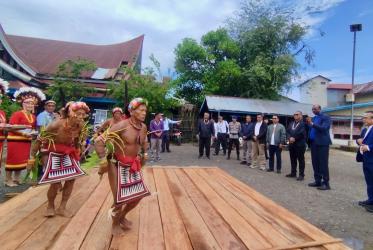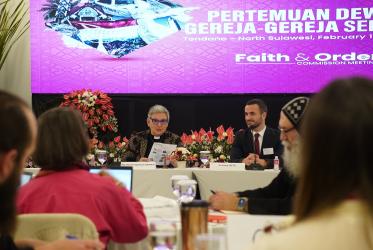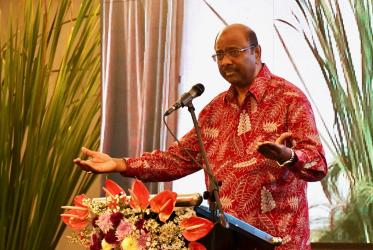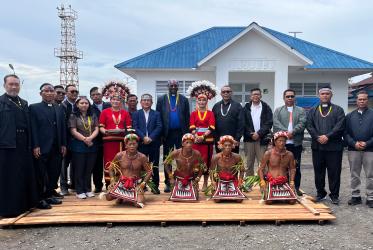As the 4th Ecumenical School on Governance, Economics and Management for an Economy of Life concluded on 30 August in Bogor, Indonesia, participants representing 15 countries and coming from diverse contexts reflected on the two-week, “eye-opening” experience.
For those with educational training in theology and ethics, the school helped to build a critical understanding of economics, the workings of international markets, processes of globalisation and financialisation, and prevailing global governance structures.
“It provided tools and languages for advocacy for a New International Financial and Economic Architecture,” said Athena Peralta, programme executive for economic and ecological justice at the World Council of Churches (WCC).
Participants with backgrounds in economics found that the school had, through theological inputs and a series of Bible studies, profoundly deepened their “theological understanding of financial and economic issues.”
“Indeed, economics is a matter of faith,” said Admire Mutizwa, a young economist working with the Council of Churches in Zimbabwe.
The Governance, Economics and Management School analytically and methodically ties together theology and economics. Moreover, it is “an important space for ecumenical learning around a much-needed discussion on alternatives” to our dysfunctional and broken economic structures, offered Thomas Frenz, a pastor from Germany.
“Governance, Economics and Management School is so abundant that we have learned economics from feminist, ecological and Islamic perspectives” with a view to shaping an economy of sustainability and justice with all creatures of the Earth, said Li U-ping from Taiwan during the graduation ceremony.
As part of the school, participants developed and presented a range of project proposals such as campaigns for tax justice in varied contexts, an interfaith capacity-building programme for faith leaders engaging with policymakers, and New International Financial and Economic Architecture certification for organisations and companies contributing towards building a different kind of economy. The projects exuded hope, energy and commitment to take forward the Economy of Life.
“In confronting us with our own complexities and realities,” the school “brought economics much closer to us,” shared Gloria Pua from Colombia. “Now we are a community of Christians keen to change the world.”





